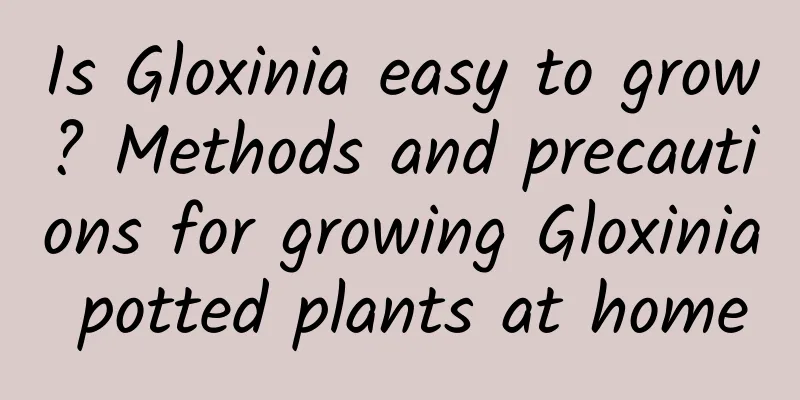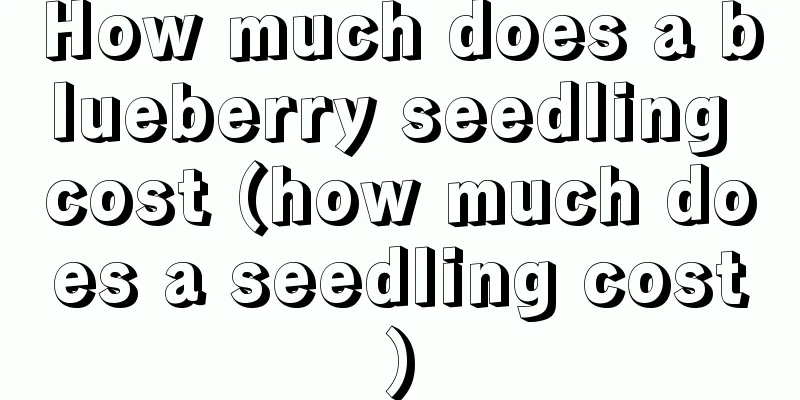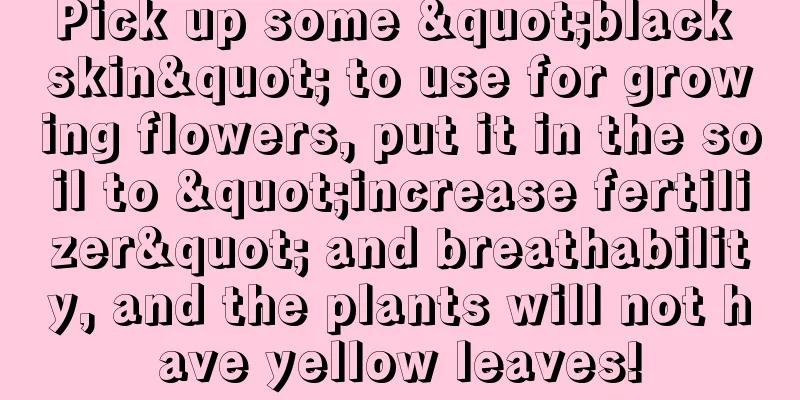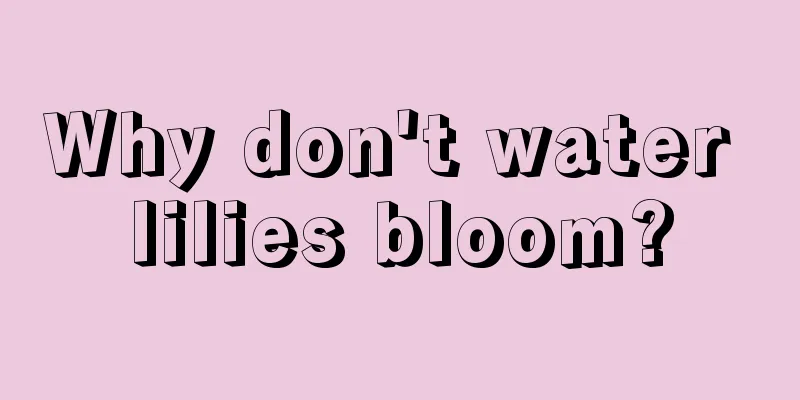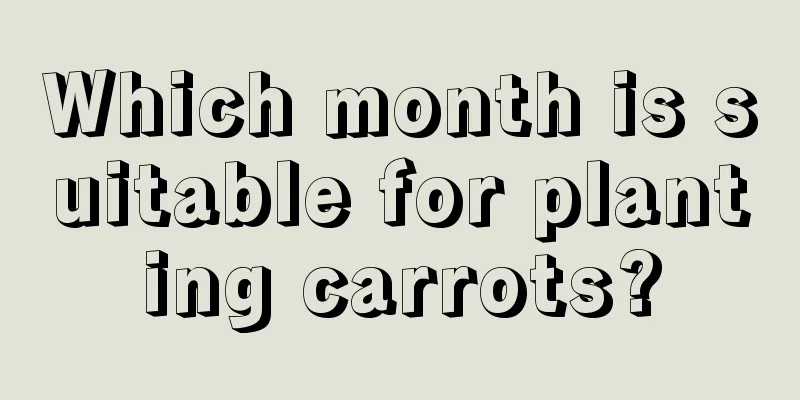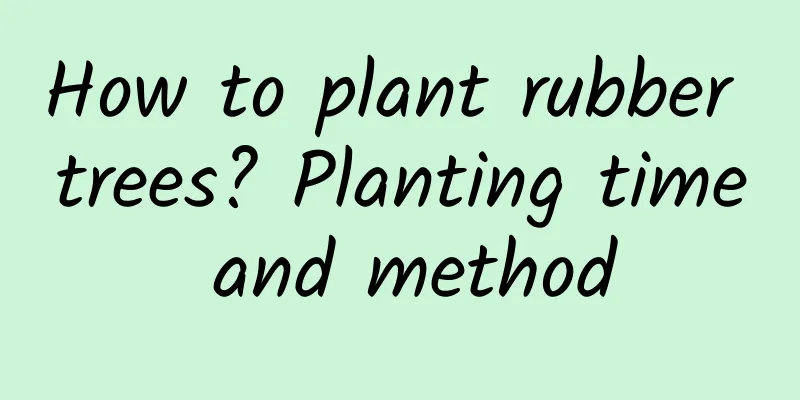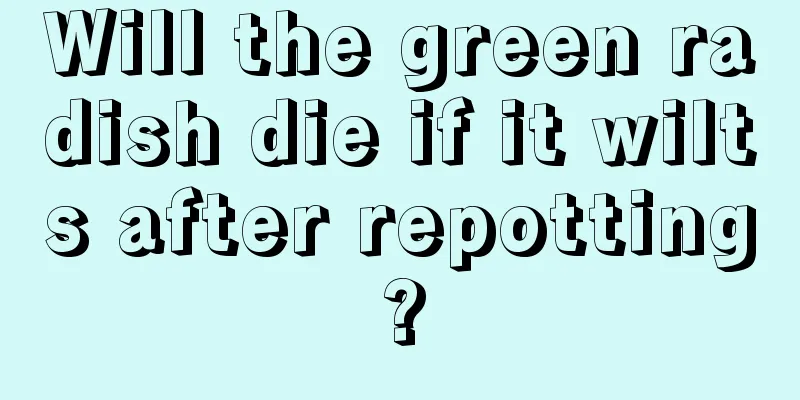What kind of soil is needed for growing pomegranates (soil requirements suitable for growing pomegranates)
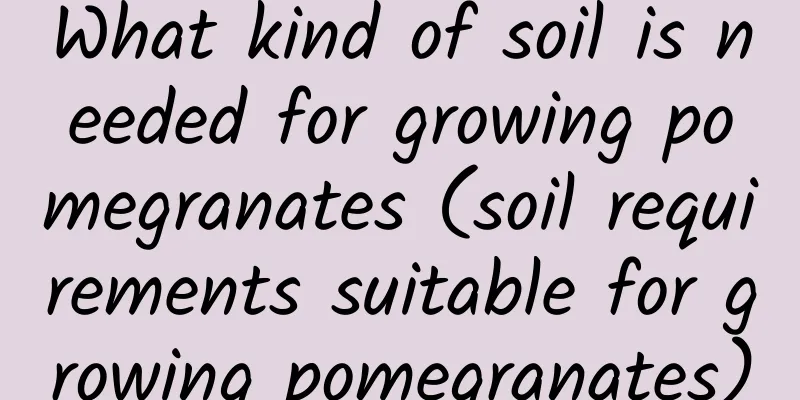
|
Pomegranate trees have certain requirements for the soil during their growth period. If the soil is not suitable, it will easily lead to yellow leaves. It likes loose, breathable and fertile soil. If the soil is too sticky and compacted, it will hinder the breathing of the roots, and over time it will cause the leaves to turn yellow or even wither and fall off. If this happens, it is best to loosen the soil frequently or change the soil once. If it is a potted plant, the soil of the pomegranate tree needs to be changed every two or three days to prevent the soil from becoming compacted. What kind of soil is needed to grow pomegranates? 1. Garden SoilGarden soil is also called vegetable garden soil or farmland soil. It is the vegetable garden soil and crop growing soil we often see. Because these soils are often cultivated and fertilized, the structure and composition of the soil are relatively stable, and they have the advantages of high fertility and good aggregate structure. Therefore, it can meet the growth conditions of most plants, so people call it "universal soil". Although garden soil has the basic conditions for plant growth, it has the disadvantages of being easy to compact and having poor water permeability and air permeability. Therefore, when planting pomegranates, it is best to add an appropriate amount of sand or other materials that can maintain soil permeability. 2. Sandy loamSandy loam refers to soil with a higher proportion of sand and a lower proportion of clay. This type of soil is loose and breathable, has high fertility, is good for drainage, and is not easy to compact. It is suitable for most plants. Although sandy loam is permeable, it is not conducive to water and fertilizer storage because of its strong moisture permeability and air permeability, and often increases the frequency of watering and fertilizing. Therefore, when planting pomegranates, if the proportion of sandy soil is too large, and the local temperature is high and the evaporation is strong, you can add an appropriate amount of clay soil according to the situation. 3. Humus soilHumus soil is also called rotten soil. It is mainly composed of rotten plants and various organic wastes. For example, leaf humus in the forest and kitchen waste belong to this category. This kind of soil is rich in organic fertilizer and has higher fertility than garden soil and sandy loam. It is often used as soil for flower cultivation. Although humus soil has high fertility, it has poor air permeability and contains more bacteria and insect eggs. Therefore, when planting pomegranates, it is best to mix it with an appropriate amount of garden soil and sand, and turn it over to kill insects. 【 Summarize 】 But in order to promote its growth better, people often make some minor adjustments. The main purpose is to ensure that the soil is fertile and loose, and try to create a good growth environment for it. |
>>: What is the sticky substance on the orchid leaves?
Recommend
Can asparagus fern be hydroponically cultivated?
1. Is it possible? Asparagus fern can be grown hy...
The use and value of ice lantern jade dew
The ornamental value of ice lantern jade dew As a...
Maintenance method of Jasper Lotus
illumination Jade lotus originally grows in hot a...
How to water potted gardenias
1. Watering method In spring, water gardenias in ...
Yew seedlings price, yew pictures
1. Seedling price The uses of yew are quite wide....
Can pumpkins be grown in pots?
Can pumpkins be planted in flower pots? Pumpkins ...
Eggplant pests and diseases and their control
Cataplexy This disease usually occurs in the eggp...
How to cultivate Oncidium
Oncidium Growing Conditions Oncidium prefers a hu...
What fruit nourishes the stomach
1. Papaya The papain contained in papaya helps to...
What fertilizer is best for orchid flowers?
Fertilizing orchid flowers Orchid flowers like fe...
Causes and treatments for yellow leaves of purple-backed arrowroot
1. Too much light Reason: Purple-backed arrowroot...
Can maple trees be planted in the north?
Can maple trees be grown in the north? Maple tree...
What to do if the goldfish plant does not bloom
1. Increase lighting The goldfish spider plant ne...
The Feng Shui effect of the large-leaf umbrella: placing it like this will bring good luck to the whole family!
Is the umbrella leaf a Feng Shui plant? The umbre...
Is it okay to use moss as a pot surface for orchids?
Is it okay to use moss as a paving for orchids? I...

